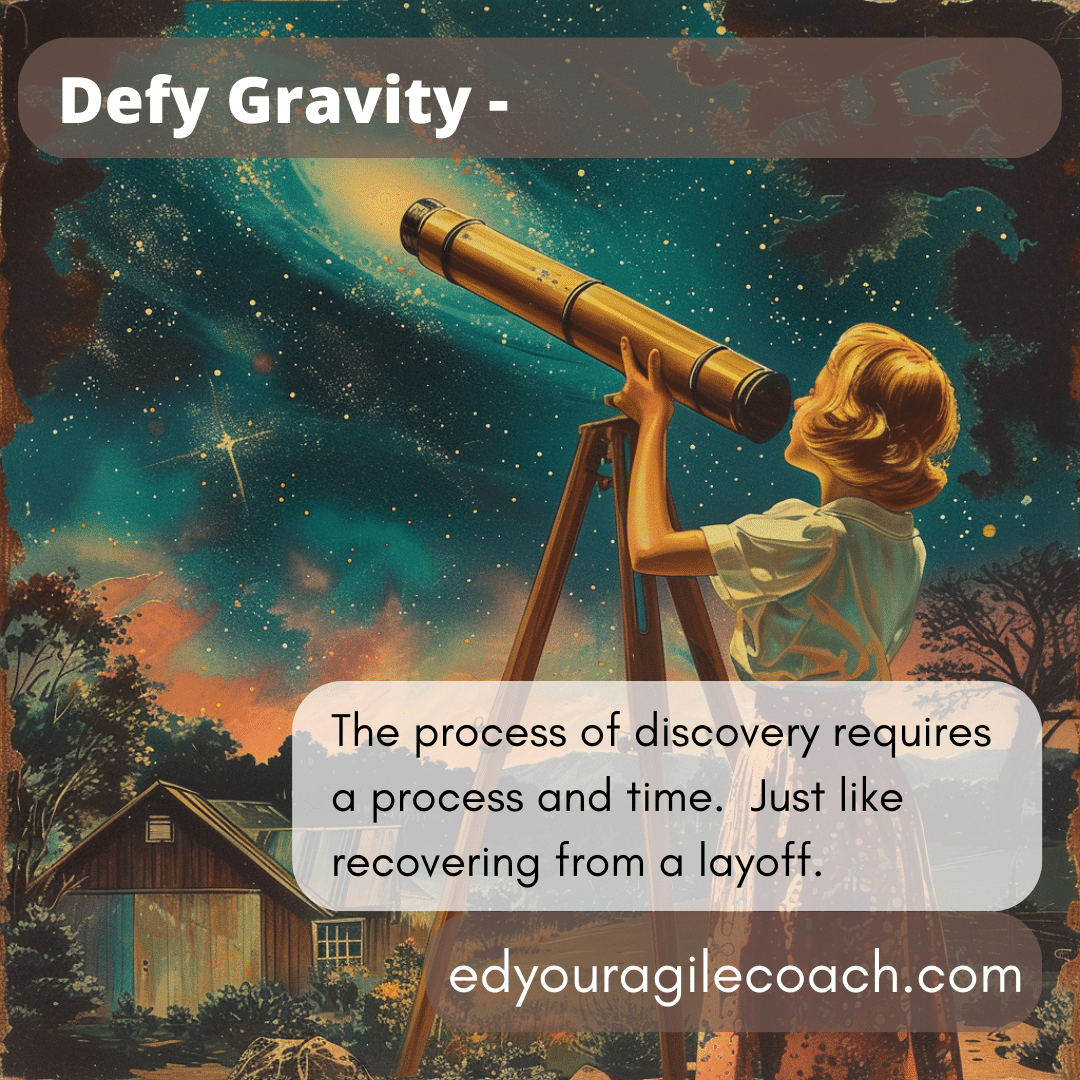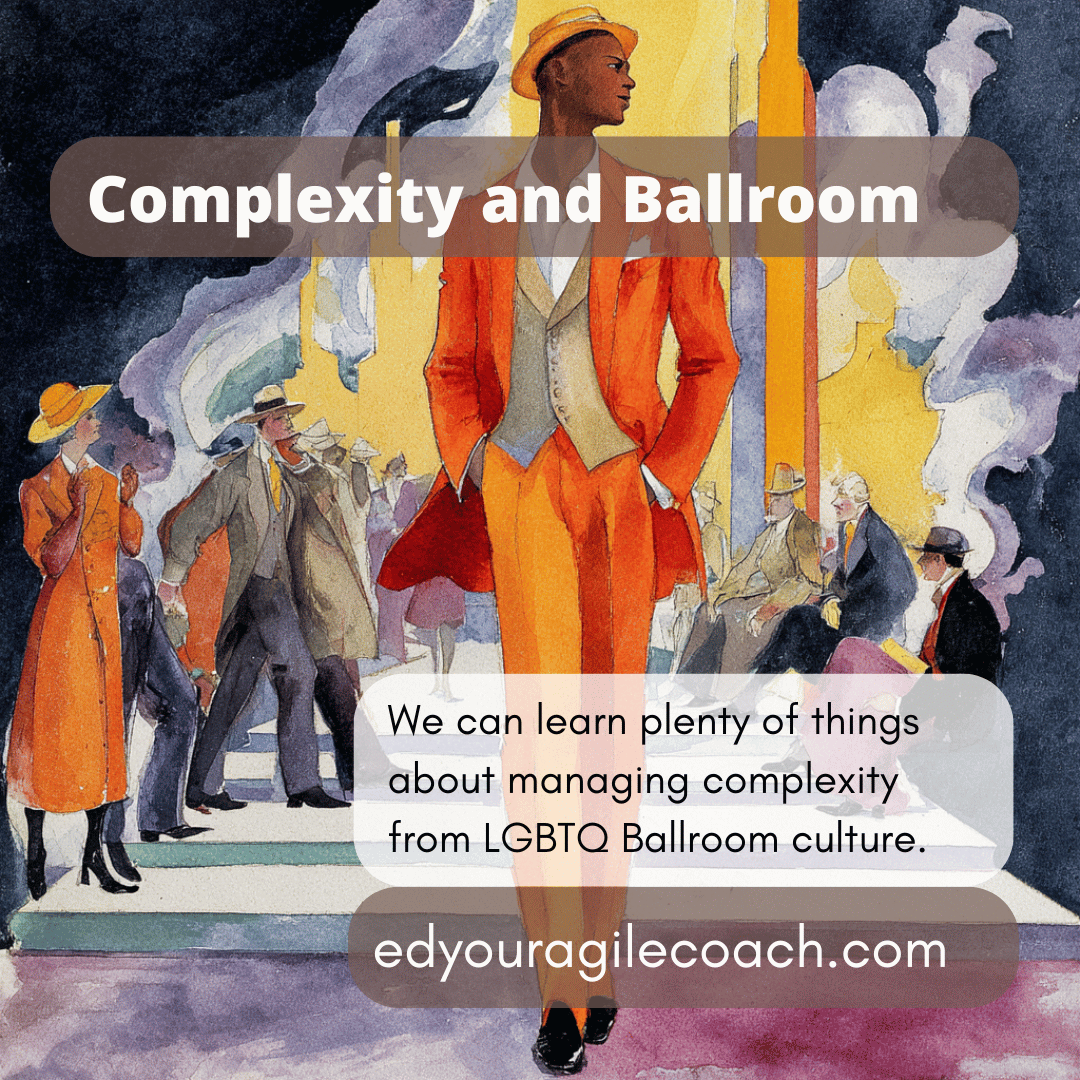Defy gravity and trust the process.

If you spend enough time in the technology business, you discover it has all the characteristics of a small town in a William Faulkner novel. There are scoundrels, victims, and people doing their best under the burden of history. As a group, we can be a bit gossipy and are always looking to stay ahead of the shifting priorities of the technology business. A better description is that we are a galaxy of talented and intelligent people whose stars cross paths regularly. Angela Dugan is one of the brightest stars in that galaxy, and she was kind enough to say that our careers have been in orbit for over ten years. Frankly, I am flattered to be caught in the gravity of her agility. Both of us are experiencing a time of transition, and this week, I want to discuss what it means to me.
In her blog, Anglea talks about her journey as a technology professional. The last eighteen months in technology and professional services have been rough. Layoffs have plagued the industry, and organizations are frightened of a recession that may not come. As William H. Janeway says in his book "Capitalism in the Innovation Economy," when times are demanding, businesses and investors hoard cash and control. With high interest rates and economic uncertainty dominating the headlines, large and medium-sized organizations hoard everything they can.
It creates a kind of paralysis where organizations are afraid to hire or begin new projects because not making a decision is less risky than making one that requires money. The uncertainty puts people in uncomfortable places where they face layoffs, firings, and job shifts. In December, I was swept up and sent hurtling into space by a layoff.
No time is a good time to lose your job, but December is tricky because the holidays and the calendar year's end are slow in the business world. Bills still need to be paid, but the opportunity to get hired is smaller. To prevent myself from feeling sorry for myself, I established a routine to keep myself focused. I woke up early to apply for jobs and conduct correspondence, and then I used afternoons to write, produce videos for YouTube, and interview with potential employers.
What I neglected to do is pay attention to the emotional and spiritual impact of my career transition. I worked for an organization that shared my values and provided me with opportunities to make a difference in the business world. Just as quickly as it began, it ended, and I was left to figure out what happened. Not only did it blow up my finances, but it undermined my self-worth. During a conference call, I went from being a valuable team member to being on the sidelines, unemployed. I felt so many emotions I did not know how to process them correctly.
In a previous blog, I spoke about Elisabeth Kubler-Ross and her five stages of grief. It is not a standard process and varies from person to person. When you lose a job, you have to deal with two additional emotions: guilt and shame. The guilt is a product of all the second-guessing you do to attempt to understand why you lost your job. Could you have done something differently or taken a different approach to save your position? The ugly truth is that you were a line item in a spreadsheet, and clients canceled projects; you were expendable. No number of positive performance reviews, late nights, or extra activities were going to save your career. McKinsey Group is creating performance improvement plans for over 3,000 workforce members. It is going to be a prelude to a reduction in staff. An employee at McKinsey Group can work anywhere, but because people are not hiring management consultants, the company is doing this to avoid the appearance of layoffs. These people are not poor workers; they don't have enough work, so they must go. In any other organization, they would be considered top performers.
Shame is the other emotion that comes from the perception that if someone is out of work, they deserve to be. It is a holdover from our Puritan origins in the early days of America's founding. Hard work was a responsibility and duty. If you lost a job, you did not work hard enough. People advance in careers and life because of merit. The prevalence of remote management adds nuance to the accurate picture, making it far more complex. So, the people who make career decisions and performance appraisals are individuals you do not have personal contact with. It means that plenty of mediocre people slip through the cracks, and top performers wind up looking for new jobs. It feels like a perverse lottery, and your prize was a job loss.
I am still working through the mourning process along with the guilt and shame. I see a counselor every other week to help me develop emotional toughness when working in the business world because there are helpful strategies when you are working with toxic people. I am also doing what Angela Dugan suggests: "trusting the process." I continue applying for jobs, writing, reading philosophy, and practicing my development skills. When I return to work, I will use this adversity to grow and develop into a better employee, coach, and leader.
I am part of a Galaxy of Agile professionals who understand and overcome adversity. I will trust the process and shine brighter on the other side.
Until next time.
My own YouTube channel.

The stigmas of unemployment is why so many unemployed feel shame.





Comments ()